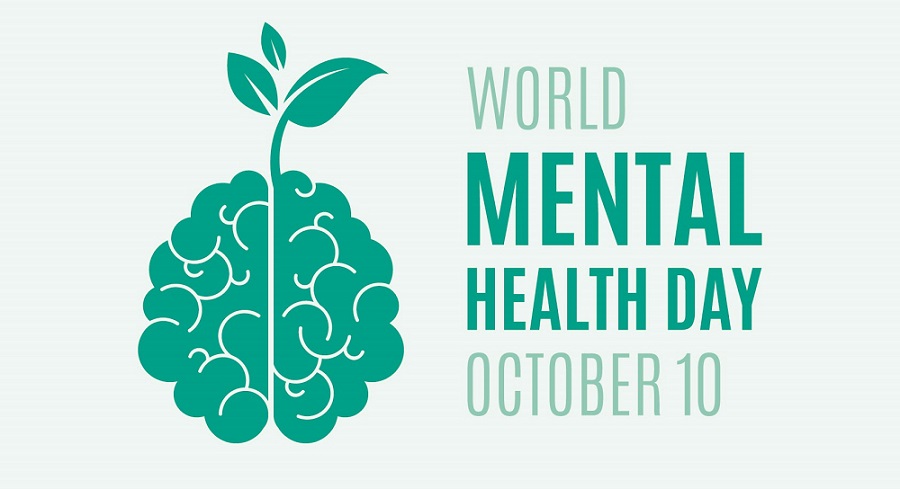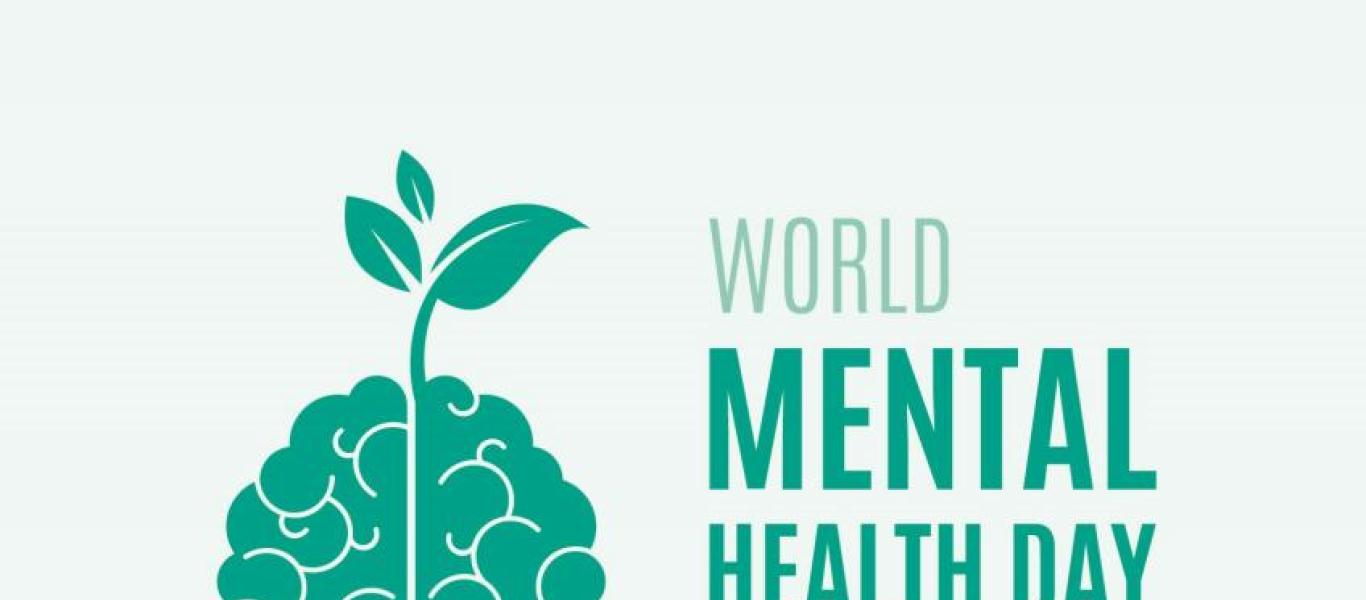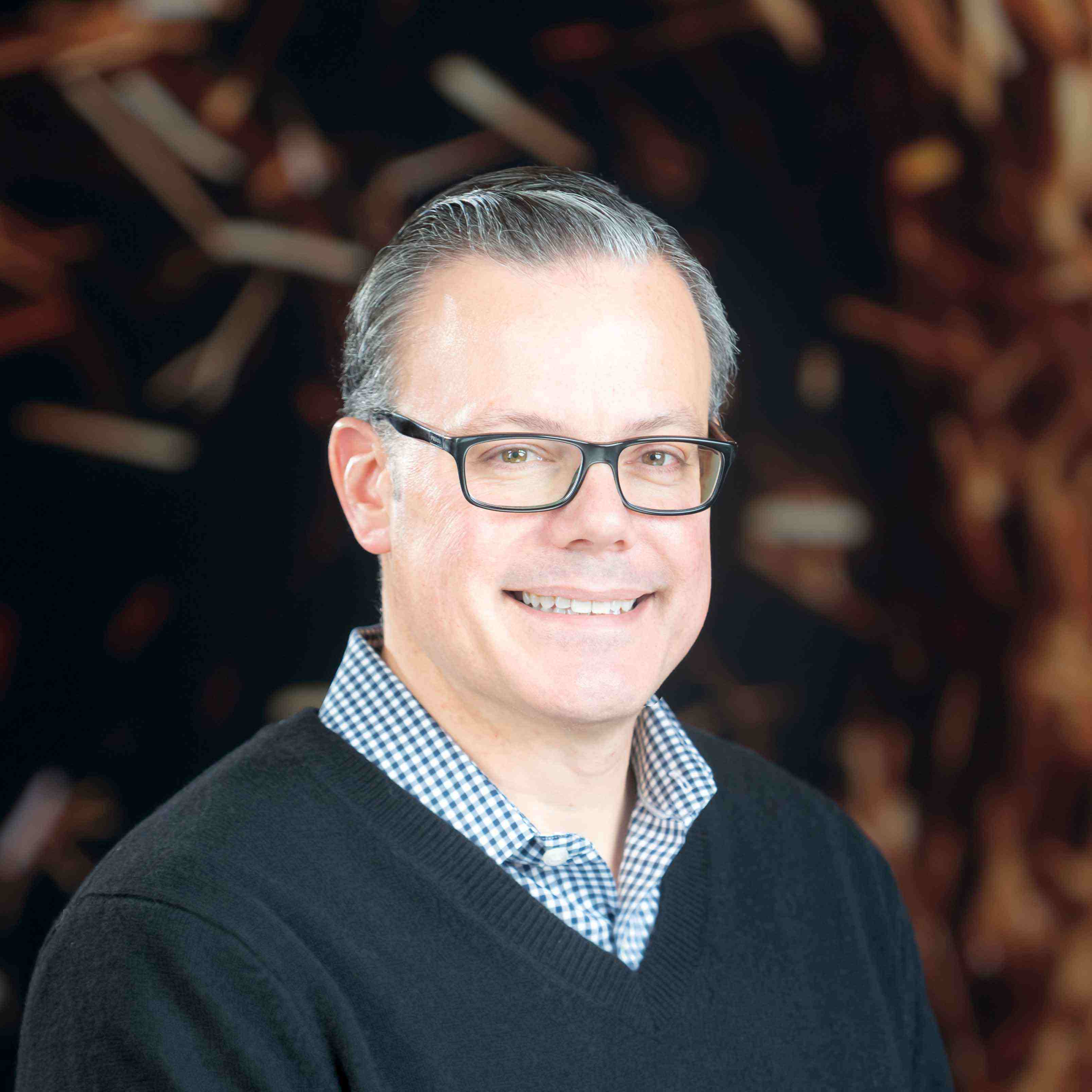
October 10 is World Mental Health Day – a day to raise awareness of mental health issues and mobilize efforts in support of mental health. In recognition of the day, GE Research has asked Andrew Hoffman, a lead scientist in our Materials Behavior organization, to share his personal experience navigating mental health issues.
Andrew is an accomplished research scientist with a love for materials design and applied physics. He also has Attention-Deficit/Hyperactivity Disorder (ADHD), depression, and generalized anxiety disorder.
Here’s what Andrew had to say about dealing with the challenges and stigma of his mental health diagnoses…
“There’s nothing wrong with you, you’re just smart and bored.” That’s something I heard often growing up and honestly, I didn’t think much about it. But in graduate school I found myself legitimately struggling to keep up with coursework and teaching assistant duties, plus navigate a social life and research career. I would have friends tell me, “You do this thing, and it isn’t normal.”
I had always played myself off as the silly bumbling idiot. But then I decided maybe I have ADHD; maybe I should get help. I went to the student health center and the first thing they had me do was take a drug test. It was really confusing to me. What does a drug test have to do with my mental health? But you see… that’s just one of the nuances of having ADHD. Some people think you’re only after an Adderall prescription.
I was 24 when I was diagnosed with ADHD and as I was getting help, I discovered that I also suffer from depression and generalized anxiety disorder. These are all genetic in my family, but also very common co-morbid disorders for good reason.
ADHD affects performance, which leads to low self-esteem. It often creates habits that are obsessive compulsive and can manifest or exacerbate feelings of anxiety. One example that was quite common for me a few years back: I would often leave my house and forget if I closed and locked the door. This is how it would go… I would get in the car, start the engine, then look at the door wondering if I had locked it. I would get out of the car, walk back up to the door, check it, walk back to the car, sit down, and then again, not be able to remember. This cycle would repeat itself three or four times until the last time I would remember to REMEMBER that the door was, in fact, locked.
Another more recent example happened only a few months ago. I had gotten back from a business trip and couldn’t find my car in the airport parking lot. I tried to use the GPS locator on my phone, but it wasn’t showing where my car was supposed to be. I tried the car alarm, but I couldn’t hear it. Instantly, I assumed my car had been towed. I felt helpless. I looked where I thought I had parked the car. There were no signs for “No Parking,” and in fact, other cars were parked there. In the midst of my panic – about to call airport security to inquire – I took a deep breath. I decided to just walk around other areas of the parking lot. And when I did, lo and behold, I found my beautiful grey Subaru patiently waiting for me.
Why was the first thing I thought of the worst-case scenario? This is a symptom of generalized anxiety, yes, but assuming the worst is very normal for me. True story, I’ve received three parking tickets for parking in front of my own house/in my own driveway. I sometimes forget to pay bills; not because of a lack of money, but because I forget they exist. Within the ADHD community, we talk a lot about the “ADHD tax” that we pay, which includes things like missed appointment fees, late payment fees, and forgetting to apply for things like tax rebates. I once lost out on a travel reimbursement of more than $1,000 because I missed the submission deadline and was too embarrassed to ask for an extension.
Anxiety comes with its own demons as well. As a young child (around the age of seven) I remember going on family vacations and having the worst feelings of dread. “What will happen to the house when we are gone? Will a tree fall on it? Will it catch on fire?” I’ve always hated going on trips and vacations; not necessarily because I’m a homebody, but because I fear the worst will happen when I’m gone. That feeling that most people get after sending a text to their crush and waiting for a reply… the doubt; the feeling like your guts are turned inside out – for people with anxiety, that’s very often the norm.
I know all these stories paint a grim picture, but that’s not the intention. These stories are my life, and they are very real. Most people who talk with me may have no idea what I go through every day. I don’t often share it because it’s not well understood. Mental health is a nuanced disability to have because it’s hidden. It’s invisible. When talking about depression some will say, “Well, just be happy. Get out of bed and do something.” Likewise, about anxiety, I hear, “You’re being dramatic/emotional. Just calm down.”
I am not alone in this; I know many others struggle. Mental health awareness is important for so many reasons. It’s important for those who suffer from mental health issues to know it’s okay. You’re not alone and you aren’t a failure. Help is available. Go to a doctor and find a prescription that works for you. Go to a therapist, if the first one doesn’t work find another one. Find a friend, a mentor, a family member, or a colleague who you can confide in. Find a professional workgroup.
Mental health awareness for people who don’t have mental health issues is also important. Listen to our stories and try to understand what we go through. Get rid of the nuances by creating a healthy dialogue. If someone is having an anxiety attack, let them know you are there to support them. When I go through situations that raise my anxiety level I sit and tell myself that I’m thinking unhealthy thoughts. It’s just my anxiety talking and that everything will be okay. Having someone support and emphasize that helps me see the objective truth. Everybody is different and has different needs. What’s important is that we ASK how we can help, and that we LISTEN when people trust us with their needs.
I am lucky to work at an organization that values taking care and being aware of disabilities of all types. GE's Disability Advocacy Network (DAN) is a great resource. I, myself, was hesitant to get involved because I literally told myself, “Oh you don’t have a real disability, so you don’t belong. This is for people who have real disabilities.” I had to literally fight my own nuanced view of mental health. That’s why those within DAN at GE have been such an amazing support for me. They encouraged me to get involved and tell my story.
I think it’s important that we all muster the courage not only to stand up to the negative tones of society, but to our own negative voices. It really helps when you know that you’re not alone and people do care. We all deserve help, we all deserve to be successful, and we all deserve to be heard.
So… on this World Mental Health Day, I’m taking my first step in speaking out and saying that mental health is not taboo. I have gotten help in my life through counseling and medical care, and I’m proud of who I am. You should be too!
GE’s Disability Advocacy Network (DAN) employee resource group (ERG) provides support and resources that enable people with disabilities, their families, and allies to connect and thrive. With nearly 2,000 members, DAN raises awareness and fosters a sense of inclusion in our communities through events, education, and advocacy efforts. At GE Research, our DAN co-leaders are John Interrante ([email protected]) and Marlee Rust ([email protected]).
We're here to solve your toughest problems.






